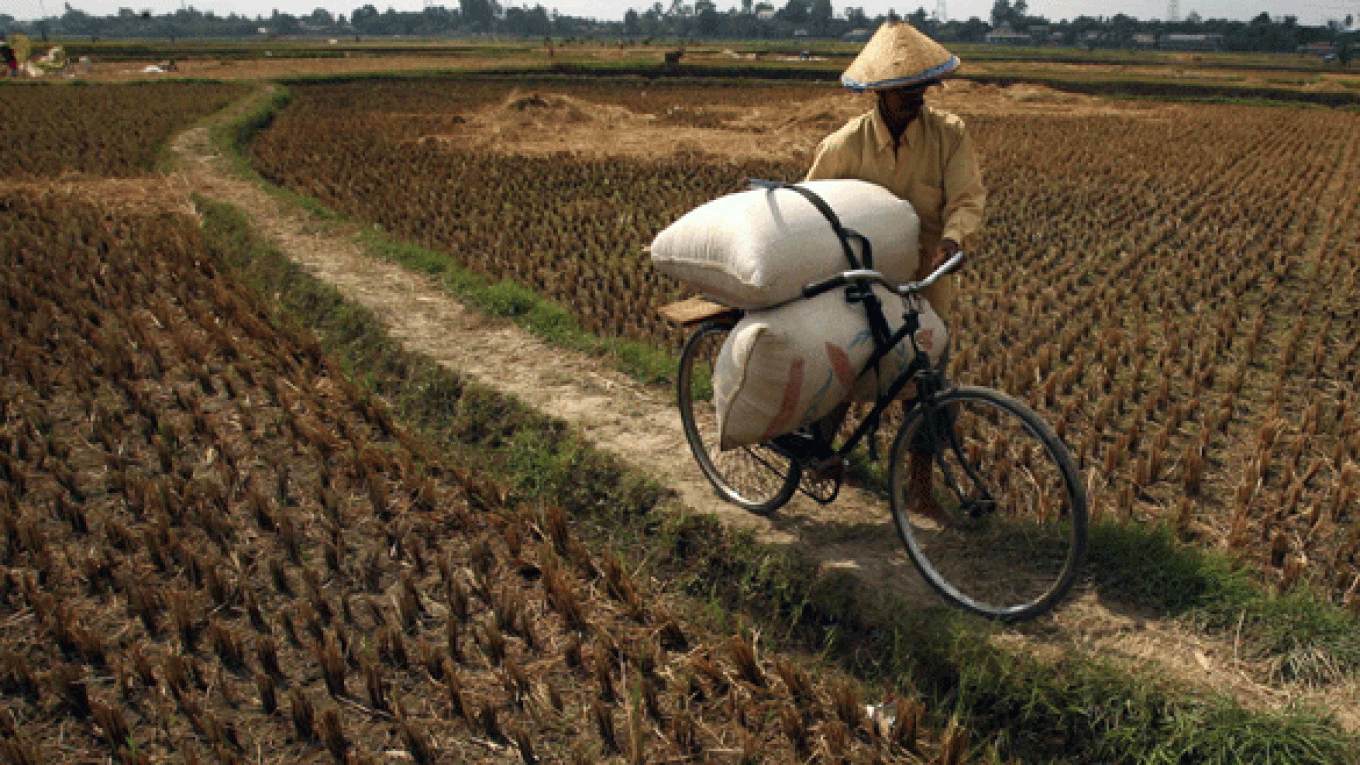Russia is offering agricultural land to Southeast Asian nations to grow crops and help secure reliable food supplies, part of wider efforts to foster trade and investment ties in new markets.
"We suggested today to companies in the region to enter the Russian market given its large scale and to establish themselves to produce food for [their] own supply," Deputy Economic Development Minister Andrei Slepnyov said last week in an interview in Manado, Indonesia, where he was attending a meeting of the Association of Southeast Asian Nations trade ministers.
President Dmitry Medvedev is turning to Asia to boost exports as his country's economy struggles to grow at the pace it did before a 2009 recession. Russia is targeting grain buyers in Southeast Asia to regain its share of the world market after lifting an export ban in July, the Moscow-based Institute for Agricultural Market Studies said Aug. 1.
"Many Asian governments are exploring alternatives to secure food supplies over the long term given that the demographic and environmental pressures in Asia could lead to structural food shortages in the years to come," said Frederic Neumann, co-head of Asian economic research at HSBC Holdings in Hong Kong. "In fact, it's already showing up in greater inflation pressures in the agricultural sectors in the region."
Asian nations are seeking stable food supplies after data compiled by the United Nations Food and Agriculture Organization showed that global prices surged to a record this year. India's food inflation accelerated to a three-month high, a report showed late last week.
Indonesia, the world's third-largest rice consumer, may seek to negotiate an agreement with India and Pakistan to secure rice supplies, the Southeast Asian nation's Trade Minister Mari Pangestu said in a separate interview Thursday.
Russian farmers are leaving about a quarter of the nation's 165.9 million hectares of agricultural land unused, State Statistics Service data show. A further 20.7 million hectares of land lies fallow, said Alexander Korbut, vice president of the Grain Union.
The country has about 24 million hectares of undistributed arable land that should be sold at below-market prices to people already working there as the government seeks to boost production, Prime Minister Vladimir Putin said in March.
The government plans to annul ownership rights to farmland that has been left uncultivated for at least three years.
Japan, the world's largest grain importer, said in April that it will help local companies invest in purchases and leasing of farmlands overseas to ensure stable food supply as the country lacks arable land. South Korea, the world's third-biggest corn buyer, plans to acquire a total of 380,000 hectares of overseas farmland by 2018 to grow crops.
The country is exploring possible investments with Southeast Asian nations in power generation, alternative energy and natural resource exploration as it seeks to boost demand for the commodities it produces, Slepnyov said.
"The center of world development is shifting to the Asian region," he said. "Of course, the region will become an even bigger energy consumer."
Russia's economy, which grew at an average of 7 percent annually in 2000-08, expanded 3.4 percent from a year earlier in the second quarter, missing economists' forecasts, a report showed late last week.
A Message from The Moscow Times:
Dear readers,
We are facing unprecedented challenges. Russia's Prosecutor General's Office has designated The Moscow Times as an "undesirable" organization, criminalizing our work and putting our staff at risk of prosecution. This follows our earlier unjust labeling as a "foreign agent."
These actions are direct attempts to silence independent journalism in Russia. The authorities claim our work "discredits the decisions of the Russian leadership." We see things differently: we strive to provide accurate, unbiased reporting on Russia.
We, the journalists of The Moscow Times, refuse to be silenced. But to continue our work, we need your help.
Your support, no matter how small, makes a world of difference. If you can, please support us monthly starting from just $2. It's quick to set up, and every contribution makes a significant impact.
By supporting The Moscow Times, you're defending open, independent journalism in the face of repression. Thank you for standing with us.
Remind me later.






